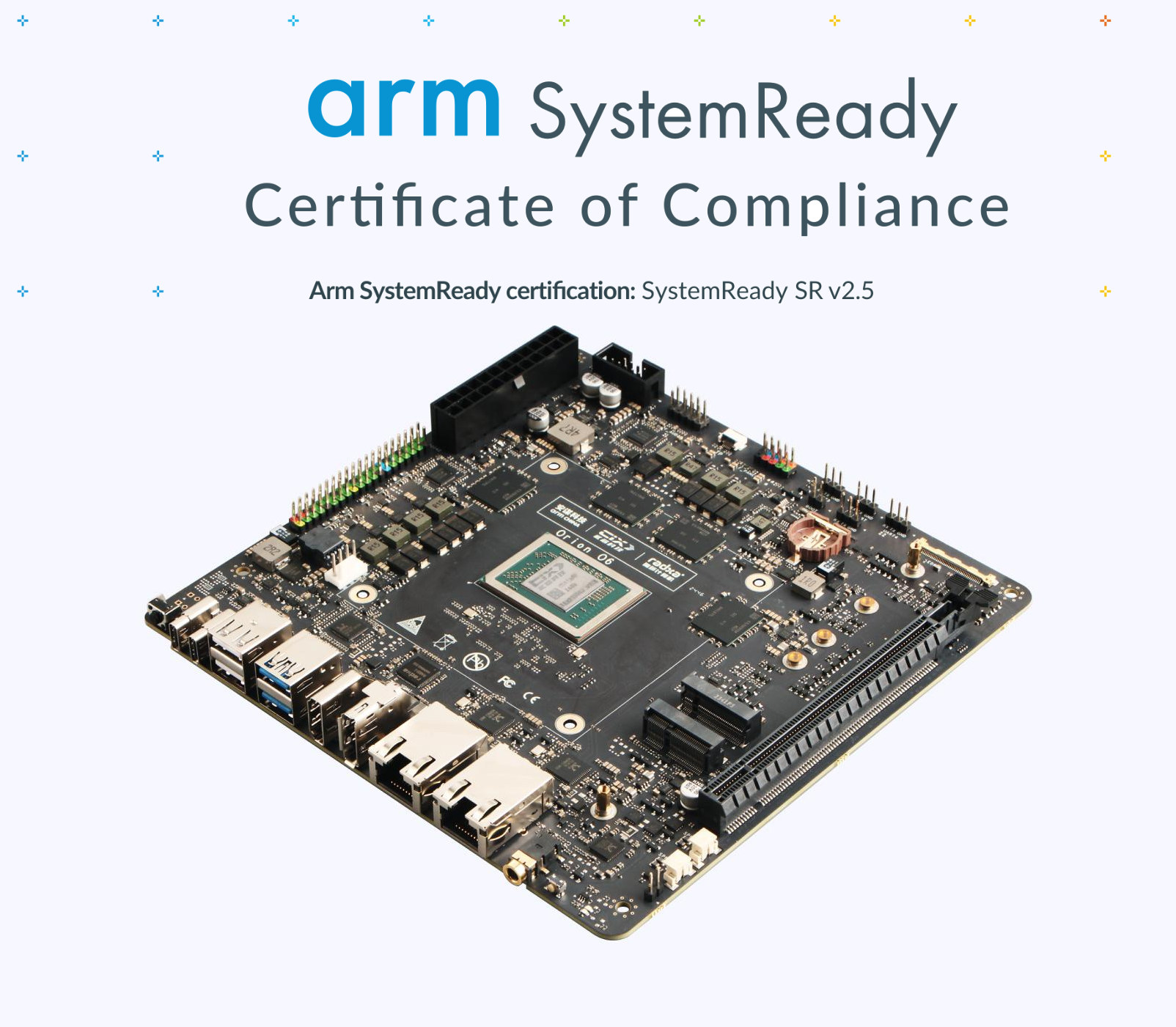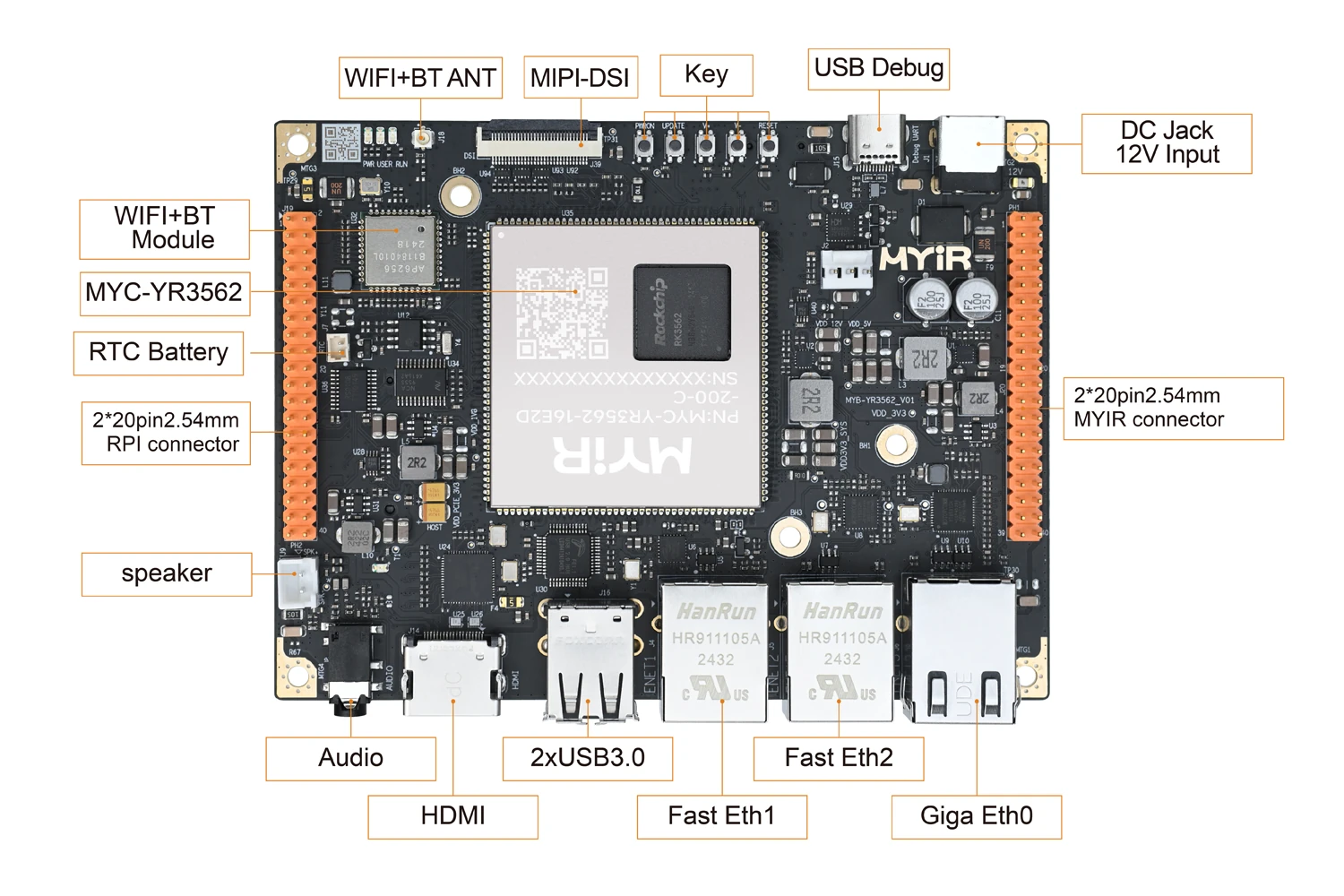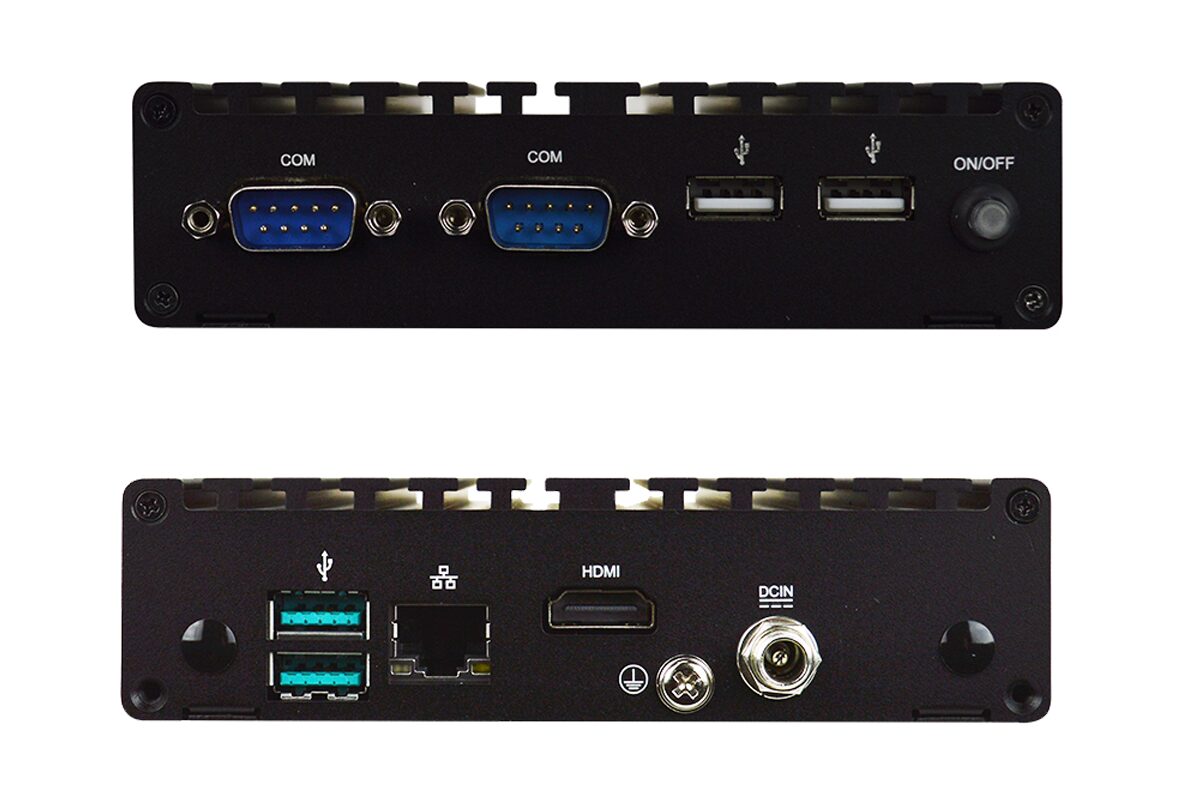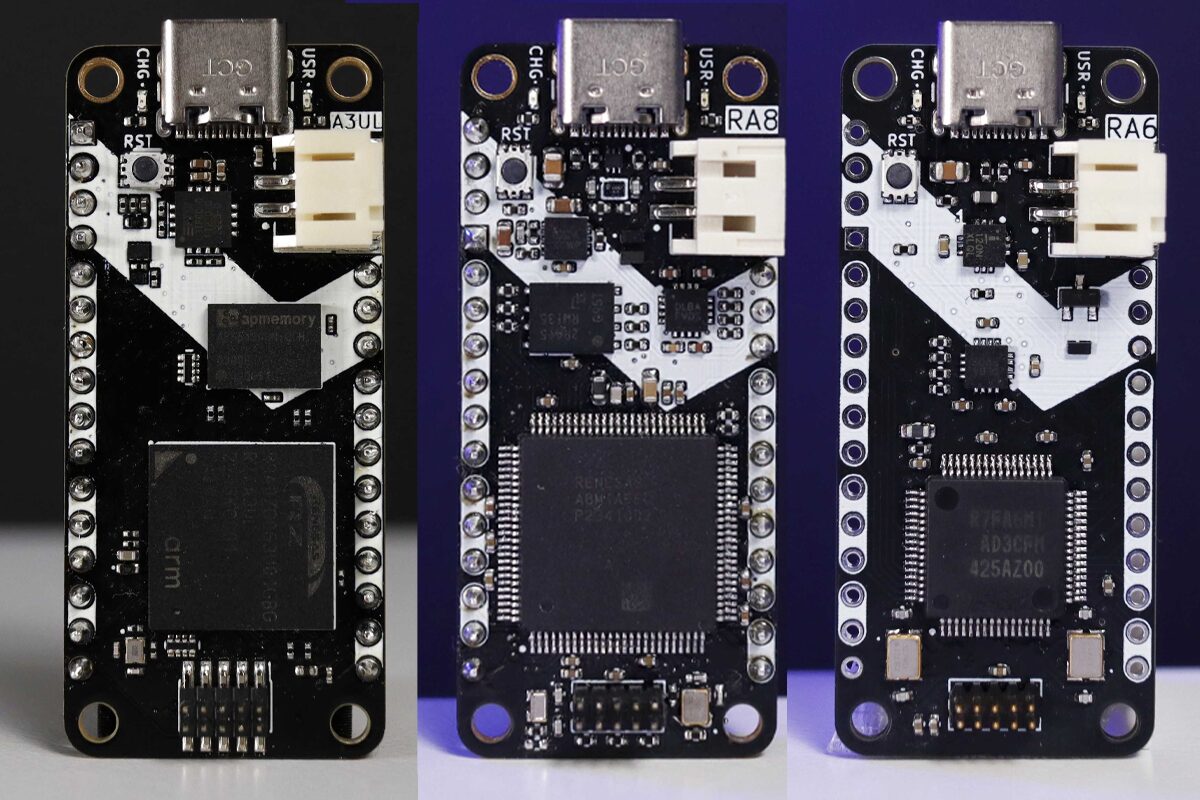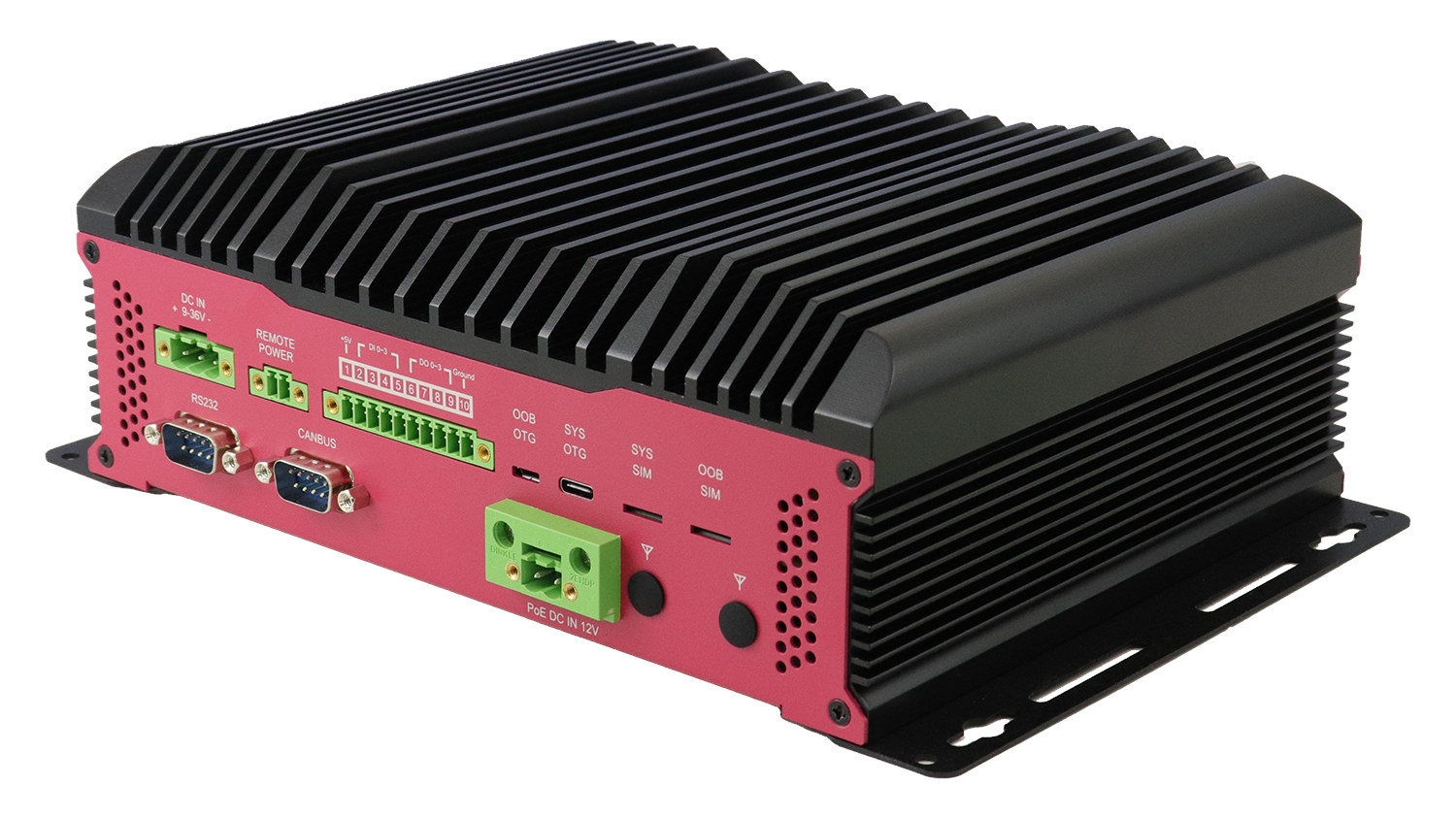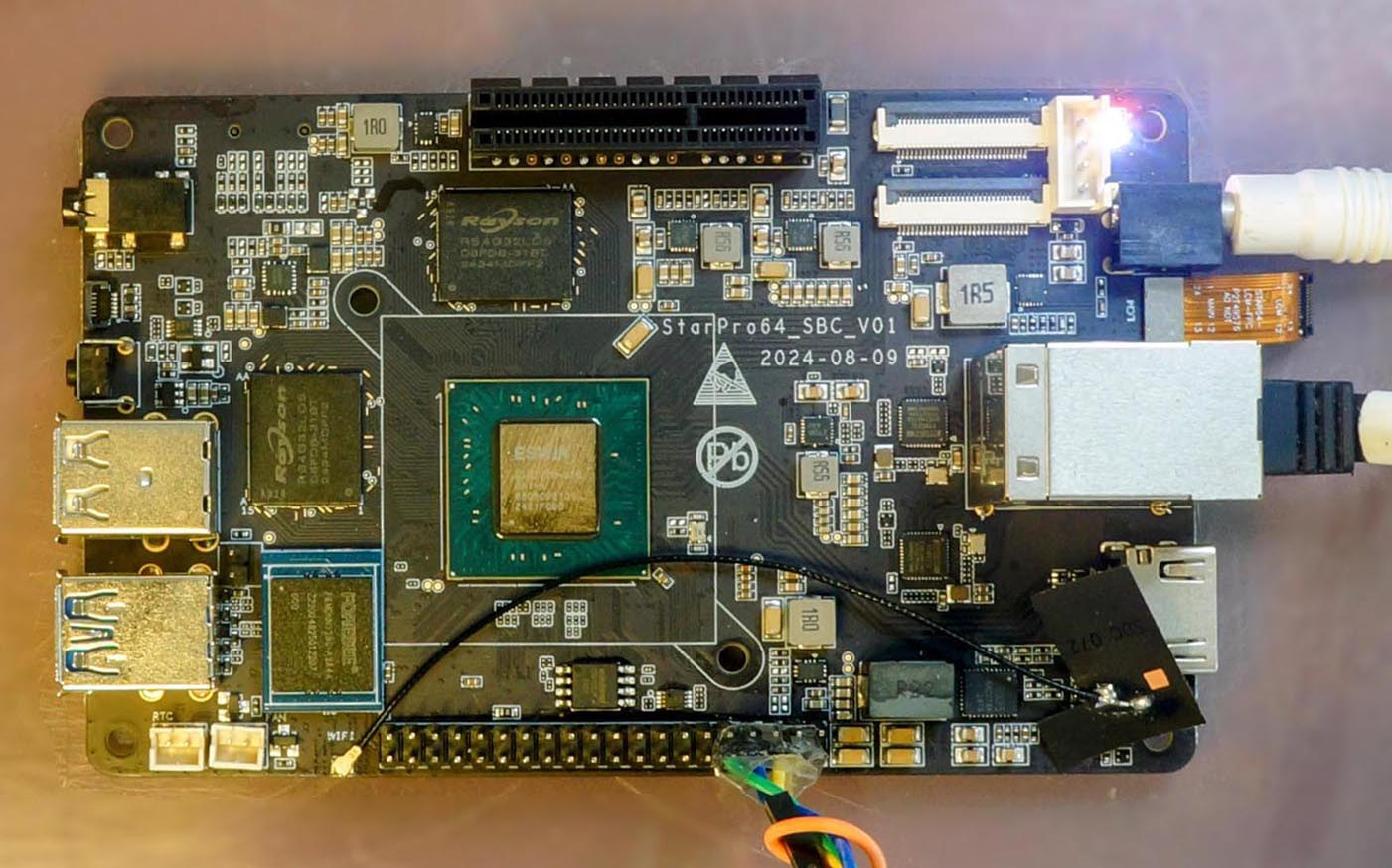Radxa Orion O6 mini-ITX motherboard powered by a CIX P1 12-core Cortex-A720/A520 SoC has just obtained Arm SystemReady SR (ServerReady) v2.5 certification, meaning it’s been shown to run unmodified several OS images such as Windows and Ubuntu. I’ve already tested a Debian 12 image modified by Radxa on the Orion O6, but one of the goals of the platform was to provide a universal UEFI + ACPI firmware to boot any Arm ISO released by OS vendors, for instance, the Ubuntu Desktop ISO for Arm 64-bit architecture downloaded directly from the Ubuntu website. The Arm SystemReady SR certification is a step in the right direction, as it means the Orion O6 has passed a number of tests showing it can boot several off-the-shelf OS images. We’ll find Radxa’s Orion O6 listed on the Arm SystemReady Compliance page among boards from other manufacturers, as well as the Radxa ROCK Pi 4B+, […]
Compex Introduces Innovative Wi-Fi 7 Quad-Band Bundle Solution: WLE7002E26 & WLE7002E55 (Sponsored)
Compex Systems (Compex), a global leader in wireless communication technology, introduces its latest Wi-Fi 7 Quad-Band Bundle Solution: WLE7002E26 and WLE7002E55. Get ready to elevate your network experience to the next level with this Wi-Fi 7 Quad-Band Bundle Solution, designed to deliver greater throughput, reliable connections, and enhanced reliability for superior connectivity performance. Powered by Qualcomm’s QCN6274 and QCN9274 Waikiki chipsets, Compex’s latest Wi-Fi 7 modules redefine the network efficiency and capacity. The Quad-Band Bundle Solution features advanced RF filters and supports four distinct frequency bands, delivering greater flexibility and optimal performance across a wide range of applications. Quad-Band Bundle Solution: WLE7002E26 & WLE7002E55 The WLE7002E26 offers dual-band concurrent support for 2.4GHz and 6GHz, featuring an advanced LTE filter that eliminates interference between the 2.4GHz and LTE B7 bands, ensuring a stable connection even in environments with overlapping signals. Additionally, another coexistence filter separates the 6GHz band from 5GHz signals, […]
Small (45x43mm) system-on-module packs Rockchip RK3562 AIoT SoC, 16GB eMMC, 2GB RAM, and PMIC
MIYR Tech MYC-YR3562 is a small 45x43mm system-on-module that packs a Rockchip RK3562 or RK3562J quad-core Cortex-A53 AIoT SoC with a 1 TOPS AI accelerator, up to 2GB LPDDR4, 16GB eMMC flash, 32 Kbit EEPROM, and a PMIC. To keep the module small while making no compromise on the number of I/Os offered, the company designed the module with 164 castellated holes (LCC – ) and 58 pads (LGA). That means the MYC-YR3562 system-on-module gets all interfaces from the RK3562(J) SoC, including Gigabit Ethernet, USB 3.0, PCIe 2.1, RGB, LVDS, and MIPI-DSI interfaces, camera inputs (MIPI-CSI), and a range of low-speed I/Os. MYC-YR3562 SoM specifications SoC – Rockchip RK3562 or RK3562J CPU RK3562 – Quad-core Arm Cortex-A53 quad-core @ 2.0 GHz RK3562J – Quad-core Arm Cortex-A53 quad-core @ 1.2 GHz (stock, overclock up to 1.8 GHz) GPU – Mali-G52-2EE with support for OpenGL ES 1.1/2.0/3.2, OpenCL 2.0, Vulkan 1.0/1.1 AI accelerator […]
Jetway B420PADN1 – A compact, fanless embedded box PC with Intel N97/N200 SoC, M.2 sockets, COM ports
The Jetway B420PADN1 is a compact, fanless box PC built around an Intel N97 or N200 Alder Lake-N SoCs. The computer system features a Pico-ITX motherboard and operates in a wide -20°C to 50°C temperature range for industrial, commercial, and embedded applications where reliable and silent operation are important. The PC comes pre-installed with 8GB DDR5 4800MHz SO-DIMM memory (expandable up to 32GB) and supports 4K display output via an HDMI 2.0b port. For storage and expansion, it offers M.2 B+M Key and E-Key slots, along with a Nano SIM slot for cellular connectivity. Other features include two serial ports, USB 3.2 Gen1 and USB 2.0 ports, Gigabit Ethernet, and VESA/wall mounting options. These features make this embedded box PC suitable for applications such as digital signage, industrial automation, edge computing, IoT gateways, kiosks, and smart retail. Jetway B420PADN1 box PC specifications: Alder Lake-N SoC (one or the other) Intel […]
Zalmotek RA6M1, RA8M1, and RZ/A3U SoMs follow Adafruit Feather form factor, support carrier board for robotics and industrial control
Romanian company Zalmotek has recently introduced three new SoMs, the RA6M1, RA8M1, and RZ/A3UL, and a modular carrier board designed for embedded applications such as robotics, industrial control, and edge computing. There are a few things that I find interesting about this setup. The SoM comes in Adafruit Feather form factor and, as a result, supports various Adafruit FeatherWings. The modular carrier board supports the Dynamixel motor driver module, the Particle M-SoM breakout module, Ethernet, and CAN modules. The RA6M1 Feather SoM is powered by a Renesas RA6M1 Arm Cortex-M4 CPU at up to 120 MHz, with 512 KB flash and 96 KB SRAM while the RA8M1 Feather SoM features a Renesas RA8M1 64-bit Arm Cortex-M85 running at up to 360 MHz with 128 Mbit SPI flash, the RZ/A3UL Feather SoM is based on a Renesas RZ/A3UL 64-bit Arm Cortex-A55 CPU at up to 1 GHz, with 512 Mbit OctaFlash […]
Muse Pi Pro is a feature-packed, credit card-sized SpacemIT M1 RISC-V SBC with HDMI, GbE, 4x USB, M.2 and mPCIe sockets
Muse Pi Pro is a feature-packed, credit card-sized SBC powered by the SpacemIT M1 octa-core 64-bit RISC-V AI SoC with a 2 TOPS NPU and equipped with up to 16GB LPDDR4x and 128GB eMMC flash. The single board computer features gigabit Ethernet and a WiFi 6 + Bluetooth 5.3 module for connectivity, HDMI and MIPI DSI display interfaces, two MIPI CSI interfaces, a 3.5mm audio jack, four USB 3.0 ports, an M.2 socket for an NVMe SSD or wireless module, a mini PCIE socket for WiFi and 4G LTE/5G cellular connector, and a 40-pin GPIO header for expansion. That’s quite a lot of features for such a compact board. Muse Pi Pro specifications: SoC – SpacemiT M1 (similar to SpacemIT K1, but clocked at 1.8 GHz) CPU – 8-core X60 RISC-V processor @ 1.8 GHz GPU – Imagination IMG BXE-2-32 with support for OpenGL ES3.2, Vulkan 1.2, OpenCL 3.0; 20 […]
IBASE EC3100 – A fanless NVIDIA Jetson Orin NX/Nano embedded computer with up to 6x GbE ports (4x with PoE)
IBASE EC3100 is a fanless edge AI computer powered by NVIDIA Jetson Orin NX or Orin Nano module with up to six GbE ports, including four with PoE for cameras, a wide 9V to 36V DC input, and a -20°C to 70°C temperature range for industrial environments. The EC3100 is equipped with a choice of modules from the Jetson Orin Nano 4GB up to the Jetson Orin NX 16GB, delivering a maximum of 157 TOPS of AI performance. The embedded system also features an HDMI 2.1 video output, audio input and output jacks, optional WiFi and/or 4G LTE/5G cellular connectivity, RS232 and CAN Bus DB9 connectors, and several digital inputs and outputs. EC3100 specifications: System-on-Module (one or the other) EC3100-NANO-4 – NVIDIA Jetson Orin Nano 4GB with 8-core Arm Cortex-A78AE CPU @ 1.5 GHz, 512-core NVIDIA Ampere architecture GPU with 16 Tensor Cores; 34 TOPS max EC3100-NANO-8 – NVIDIA Jetson […]
Pine64 StarPro64 is a RISC-V SBC with ESWin EIC7700X AI SoC, 32 GB LPDDR5
Pine64 StarPro64 is a single board computer (SBC) powered by an ESWin EIC7700X quad-core 64-bit RISC-V SoC with a 19.95 TOPS AI accelerator and equipped with up to 32GB LPDDR5 RAM. It has a similar design to the Star64 SBC powered by a StarFive JH7110 RISC-V SoC, and features HDMI video output, MIPI DSI and CSI display/camera interfaces, two gigabit Ethernet ports, four USB ports, a 40-pin GPIO header, and a PCIe Gen3 x4 slot. The OS can boot from a microSD card or an eMMC flash module. StarPro64 specifications: SoC – ESWIN EIC7700X CPU 4x SiFive Performance P550 RV64GC RISC-V cores @ up to 1.4GHz or 1.8GHz with Cortex-A75-class performance 32KB(I) + 32KB(D) L1 Cache 256KB L2 Cache 4MB shared L3 Cache Cache supports ECC (supports SECDED) NPU – Up to 19.95 TOPS in INT8, 9.975 TOPS in INT16, and 9.975 FTOPS in FP16 Vision Engine HAE (2D Blit, […]


